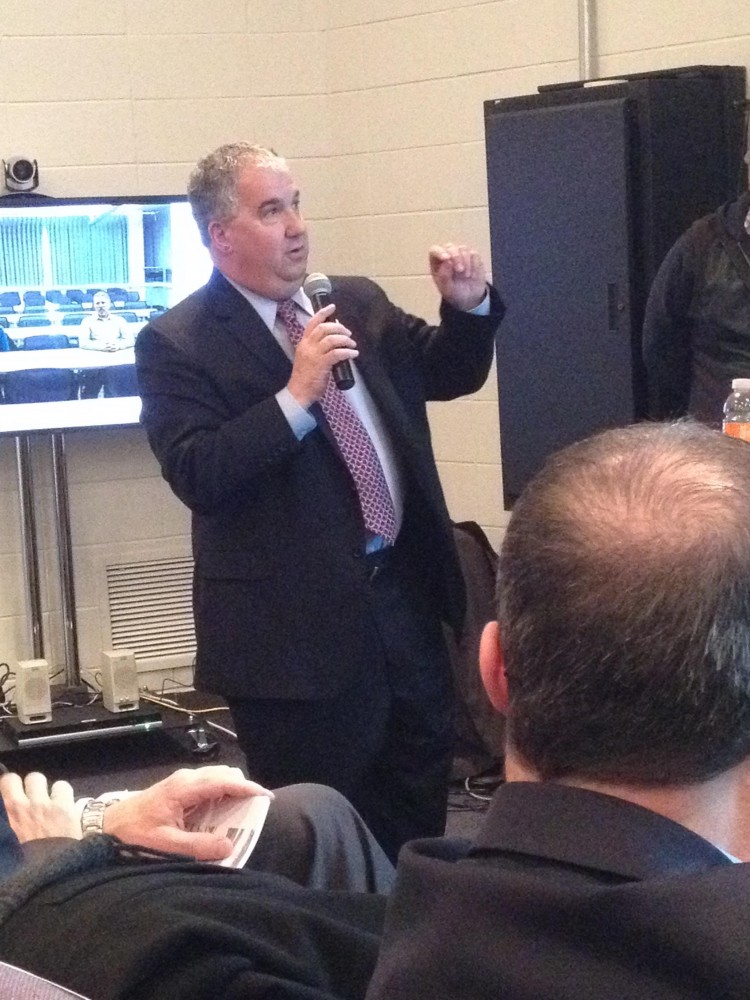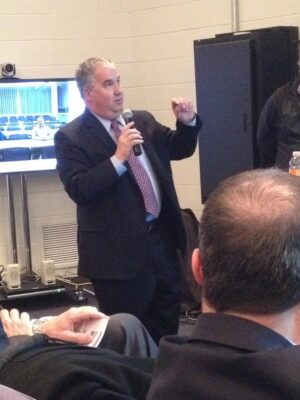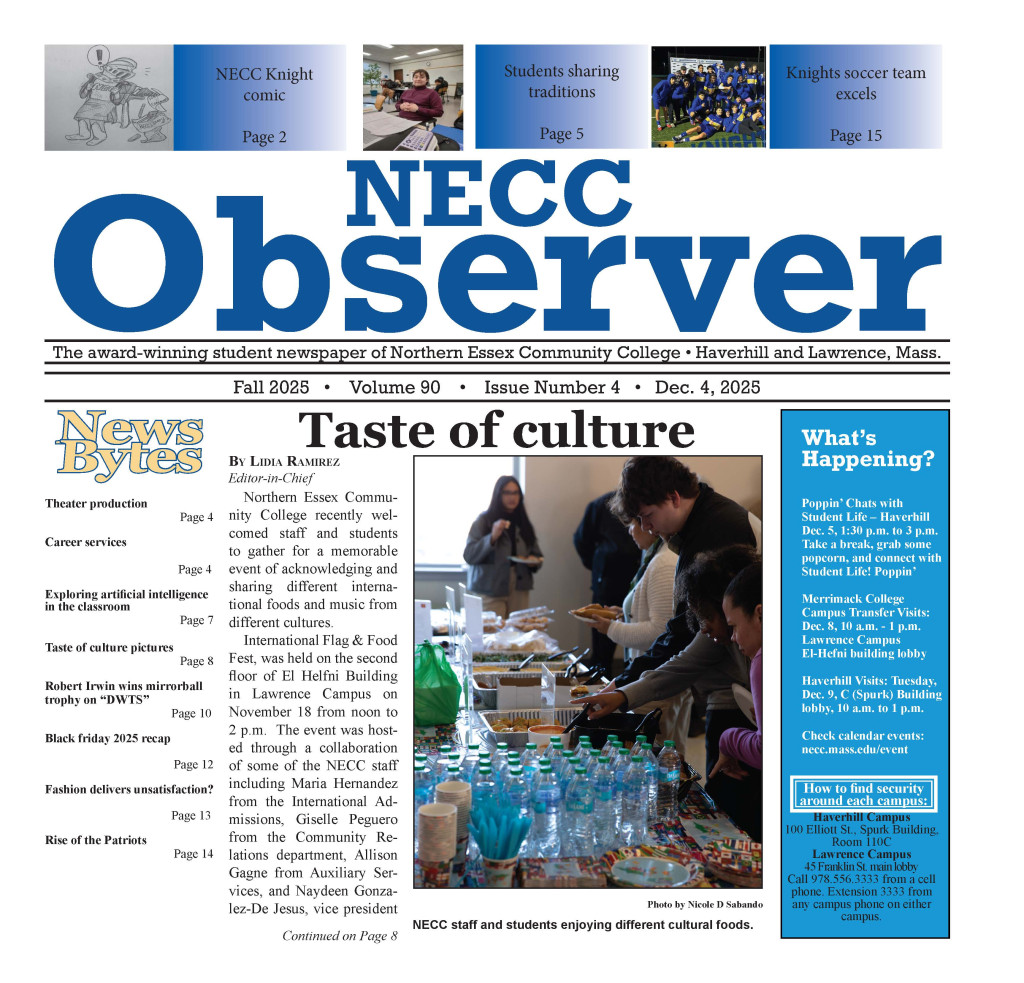What does a student at NECC do when they want to transfer out-of-state? It is well known that NECC is a great gateway to 4 year colleges in state, but what about the students who want to branch out of New England and explore other parts of the country?
Kelsey Terry, a biology, psychology and philosophy major exemplifies dedication to her education and desire to leave New England for grand plans. She is the student representative of the Finance Committee and Executive Committee, president of the Phi Theta Kappa Honors Society, student trustee and will be graduating with high honors. She has been accepted to Stephens College, Columbia MO, Stetson University, DeLand FL, Florida Institute of Technology, Melbourne FL, and is waiting on University of Arizona, Tucson AZ, and University of California Davis, Davis CA.
Over winter break in January, Terry visited 3 schools that she extensively researched and planned to go see on a solo trip. The first leg of her journey began from Boston on January 4, she took a train from Boston to Orlando FL, which was 27 hours!
“Seeing the view of the country of the east coast was awesome. It’s just great being away from New England are for a little while,” said Terry. The first school visited was New College of Florida, in Sarasota, FL. “They are primarily the school that would give me the most money efficient package,” said Terry.
The college is small, with class sizes that have a maximum of 55 students per course, with only 850 total students. It is what is considered a ‘no common core’ college.
“They do not have GPAs, or A-F grading. They are all based off of narrative evaluations. They’re an honors college — they have honors diplomas given and when you’re admitted you have to commit to being an honor’s student. It has master’s level expectations, but extremely flexible,” said Terry.
The next part of Terry’s trip was from Orlando to Davis CA to the University of California Davis on a train for 80 hours, due to layovers in Washington DC and Chicago.
“I stayed there for 3 nights, I wanted a chance to mosey around the area, and visit the whole school and see all the apartments,” said Terry. She had a profound interest in this particular school due to her passion for animals, more specifically the animal biology major offered. She is more focused on animal biology as opposed to human biology, and University of California Davis has the best program for that field.
“They already have an animal biology as bachelor’s in science so I’m not focused on the general bio, I’m focused on animals,” said Terry. This year, University of California Davis was voted the number one veterinary school in the country surpassing Cornell University, for the first time making someone like Kelsey a very good candidate for veterinary school which is her dream.
The third leg of Terry’s journey was from Davis CA to Tucson AZ to visit the University of Arizona.
“I was there for two nights, and that school was beautiful. It’s massive, but Tucson is a beautiful area I’ve never seen more cactuses in my entire life. They’re a large university but they have the best for supports based off the large size,” said Terry. At both University of California Davis and University of Arizona the class sizes are a minimum of 150 people, which can prove challenging for someone coming from a smaller class sized community college like NECC. It is important to know things like that when applying to any four year college, and especially a school that it out of state. Terry took the time to visit these schools she showed a vested interest in to see how they may or may not fit into her goals academically.
Terry then went from Tucson back home to Boston with much more to consider for her upcoming spring break college visitation plans.
Over the spring break, Terry took a second solo journey visiting more out of state colleges. The first one she visited was Stephens College located in St. Louis, Mo.
“I left on Sunday, and this was by plane from Manchester NH to St. Louis Mo. From St. Louis an hour after arriving I went on the Missouri Express Shuttle to Columbia to see Stephens College. It is the most pet friendly school in the entire country, obviously that is what attracted me to them. There is only 850 students, they have an agreement with the University of Missouri and Columbia College, so I could take classes from those schools too,” said Terry.
Similarly, NECC has agreements with UMASS Lowell.
“I liked this school because of the small class sizes, they have a max of 10 people per course. They’re the school that contacts me the most, they seem like they want me,” said Terry. It suits students who do well in small classes, much like NECC’s smaller class sizes. “Downtown Columbia is beautiful, it’s like a piece of graph paper. Street attached to street, there’s stores connected to bakeries. It’s everything you need within a radius and walkable to the other two schools it’s affiliated with,” said Terry.
The next school on the list to visit was Stetson University in DeLand, FL. “This school was nice too because it was pet friendly, I want to bring my cat Mikey and my satin rabbit Snickers. I did a thing called shadow day, when you commit to going on campus, getting an information session, then you get a campus tour, after the tour you talk to your intended major advisors. I talked to the biology advisor, and I also talked to a psychology advisor too just in case,” said Terry. She got to opportunity to attend a bio II class.
“I was kind of shocked, because it varied from NECC’s version of bio II. NECC’s version focuses more on genetics and ecology/evolution, and I was surprised that at a university, there’s was like, focused more on anatomy and physiology,” said Terry. Interestingly, Stetson University is a private institution which may explain the difference in curriculum.
The next day Terry visited Florida Institute of Technology (FIT), which is in Melbourne, FL.
”This school I really liked because it is known to be a school that is worldly respected, especially when you’re trying to get into really competitive fields, like veterinary school. It is even more competitive than medical school,” said Terry.
On Terry’s visit to FIT, she attended what is called ‘Exploration Day’ which includes the information session, a tour where students are paired up with a tour guide, and where students talk to intended advisors for specific majors. After that, students get a tour of the appropriated centers of primary use.
“I got to see the microscope lab, and the biology labs I would be working in,” said Terry. Students are admitted directly to a major at FIT. “I don’t need to apply to biology and then apply again to pre-med, I would be admitted directly into biological science pre-med.
All coursework begins in the major so there’s none of this preparation stuff — all STEM students are involved in undergraduate projects right away, all have access to professors and funded research at the undergraduate level, so they purposely don’t have the graduate school interactive with the undergraduate school,” said Terry.
Based on the factor that half of the school is consisting of engineer majors, Terry is a little skeptical that she will like it, as that is not her niche.
Terry is also a tutor at the tutoring center at NECC and would have the opportunity to work in the tutoring center at Steven’s College and FIT, due to her experience with NECC.
“I like the fact of helping people in something that I think I academically excel in. I want to help improve graduation rates, I don’t want people to let the fear of math stop them from graduating,” said Terry.
“I would say, number one, look at the field you’re going into because you need to weigh out the particular field, how much you’re going to be making in reference to the value of what your education is. I know in my field, veterinary clinical pathology is not popular, so the fact that I am a female in a unique field I am going to most likely be hired easily. Having a 12 year degree isn’t bad, it’s in my favor. In general, I would say people need to start early, I mean, I was looking into these schools my 2nd year at NECC, which was two whole years prior to me even graduating.
“I think is some ways staying in state you’re only looking at financial, and I’m not looking at financial as a priority, I’m looking at what does the school offer me. Based off of a student preparation, I think you should make it a commitment to visit the schools — don’t just stay within the mass transfer agreement, it is a benefit to have all these schools open to us but you really should look outside what this world has to offer us,” said Terry.



